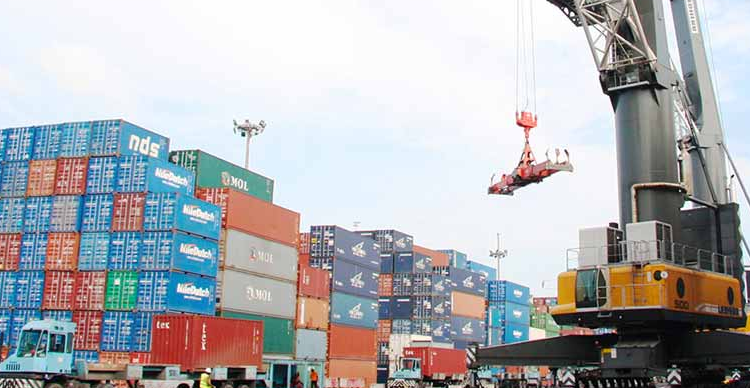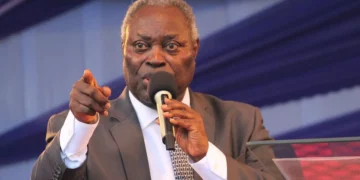The fluntuation of the Customs exchange rate for cargo clearance at the nation’s seaports has continued to be a source of concern to importers and clearing agents operating at the nation’s seaports.
The fluntuation has contributed immensely to inflation as prices of goods and raw materials hits roof top in the country.
LEADERSHIP gathered that exchange rate has moved from N450/$1 in 2023 to N1572.507/$1 in 2024, thereby, increasing cost of clearing vehicles and other cargoes at the seaport.
However, to arrest the continuous rise in prices of goods, the Centre for the Promotion of Private Enterprise(CPPE), appealed to the Central Bank of Nigeria (CBN) to peg the customs duty exchange rate at N1,000 per dollar for the rest of the year in line with the federal government’s commitment to ease the current hardships on the citizens and the burden on businesses.
The chief executive officer(CEO) of CPPE, Dr Muda Yusuf, who stated this in a press release sent to LEADERSHIP, said, “the centre welcomes the decision of the CBN to approve the use of the exchange rate reflected on the import documentation (Form M) at the onset of import transaction. This was a laudable response to the grievances of investors in the economy. This would reduce the current uncertainty around imports and related transactions in the economy.”
“The CPPE strongly appeals to the CBN to peg the customs duty exchange rate at N1000 per dollar for the rest of the year. The current customs duty exchange rate of N1488.9 per dollar is still too high in the context of the current galloping inflation and difficulties facing businesses and the citizens.
“Instances of abandoned cargo are on the increase as a consequence of escalating trade costs. These are not good outcomes for an economy seeking to ensure recovery, drive growth, promote inclusion and guarantee social stability.
“Businesses are currently grappling with multiple macroeconomic and structural headwinds which are negatively impacting profitability, competitiveness, job creation, retention of existing jobs and business sustainability.”
According to Yusuf, pegging the customs duty exchange rate resonates with the present intervention measures to mitigate the current hardships in the country.
Also speaking to LEADERSHIP, the former acting President, Association of Nigerian Licenced Customs Agents (ANLCA), Dr Kayode Farinto, advised the CBN to have a predictive exchange rate workable for a period of two quarters.
According to him, that would save the nation’s ports and importation from declining.
“We can adopt from January – June an exchange rate of N1000=$1 for Customs purposes/cargo clearance. This will stabilise our import and affirm confidence on our importation knowing fully well that, whatever the situation, the exchange adopted is N1000 to a dollar. If there is need for an increase, it will be obvious to all and there would have been sensitisation from the 2nd week of June, for any increase,” Farinto said while discussing with LEADERSHIP.
According to him, the CBN decision to advice that the Nigeria Customs Service and other related parties adopt the closing foreign exchange rate on the date of opening Form “M” for the importation of goods, as the foreign exchange rate to be used for import duty assessment is a step in the right direction, kudos to the new leadership of the CBN for the directive on Form “M” which should be the norm, not necessarily an intervention or solution but conforming to the international best practices.
“You recall that, in the last one decade we have been clamouring that the foreign exchange rate at the time of opening Form “M” ought to be sacrosanct for Import duty collection at the time of clearance. The CBN directive will help the Nigeria Customs Service from benchmarking, which she has resorted to in the last few years and not a solution to the fluctuating exchange rate,” he added.
He said if there must be sanity in the nation’s economy, then the CBN should overhaul her entire system.











